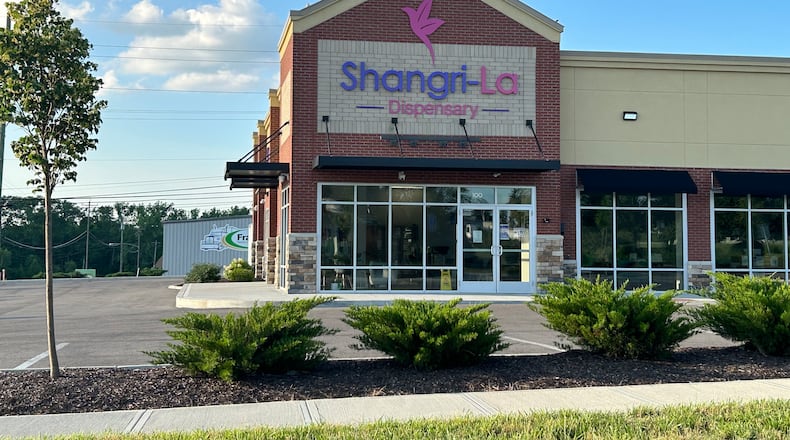The first reading was approved earlier this month and the second reading was approved Tuesday night. The effective date of these regulations will be Dec. 26.
Since 2022, council has been monitoring and discussing the impacts of cannabis use in the city, according to a presentation from Tom Smith, development director..
The regulations, approved by the Planning Commission and City Council, say the city can limit the amount of cannabis operators in the city; a facility can’t be located 500 feet from the property line of a public library, church, public playground, public park or school; and a dispensary can’t be located within one mile of another dispensary.
Smith said it’s important for Monroe to “prevent clustering,” regardless of the type of business.
According to a map Smith presented, when these 500 feet and one mile restrictions are in place, those looking to open another cannabis business in the city will have limited options.
Monroe has four dual-use dispensaries, one cultivation facility and one processing facility, according to Smith.
The city’s four marijuana businesses — two in Butler and two in Warren — are located near Interstate 75 and Mayor Keith Funk has said the amount of transient traffic already creates a strain on city services.
The four Monroe dispensaries: Columbia Care Monroe, two Shangri-La Dispensary Ohio locations and The Landing Dispensary are located 2.5 miles apart.
New law director named
Without a law director for about one month since K. Philip Callahan retired, City Council unanimously approved the hiring of a partner with Frost Brown Todd as law director.
During Tuesday’s night meeting, the seven council council approved the hiring of Jack B. Hemenway II as law director and Frost Brown Todd as the city’s legal counsel.
Council also approved legislation that lifts a ban on cannabis businesses in the city.
Frost Brown Todd will provide the city with retainer and non-retainer services under this contract, effective Sunday.
For retainer services, the city will pay the firm $7,000 per month on a flat fee basis. The retainer will cover standard law director services, including attendance at council meetings; Mayor’s Court prosecution; reviewing and drafting resolutions, ordinances, and contracts; and providing general legal advice and legal opinions to council, according to the contract.
The retainer may be increased each year by not more than 5% per year except as otherwise agreed.
Non-retainer services will be billed separately at the attorneys’ discounted billing rates, according to the contract. Non-retainer services include: litigation, collective bargaining and personnel, land use and zoning, construction, public finance, and any individual matter expected to take 10 or more hours of attorney time.
For non-retainer services, the fees are based primarily on the time expended by the firm’s attorneys, paralegals, and other professionals on the engagement, including travel time charged at regular rates. The current rates of those attorneys likely to handle most of the legal work for the city range from $255 to $380 per hour, according to the contract.
The firm’s hourly rates are reviewed periodically and may be increased from time to time, typically at the beginning of each calendar year.
About the Author


